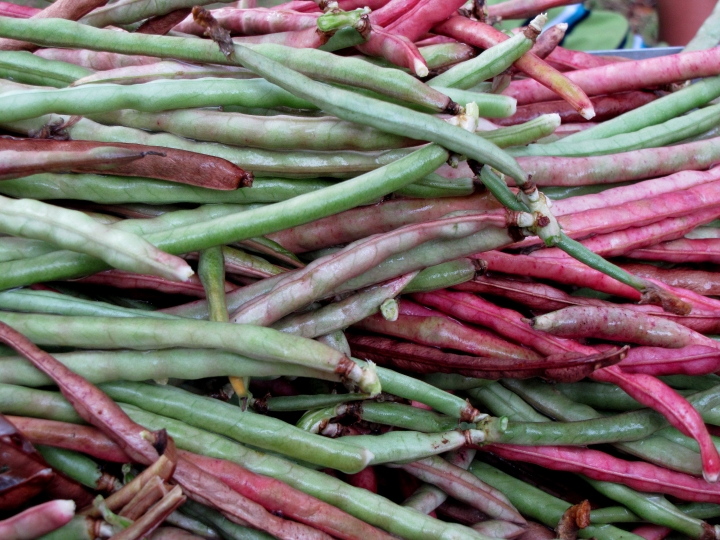Snap beans with enhanced nitrogen-use efficiency
for organic production-Year 2
The snap bean is a vegetable in the Fabaceae family and does have the capacity to fix atmospheric nitrogen through a symbiotic relationship with Rhizobium spp. Historically, easy access to nitrate-based soil amendments at a relatively low cost has precluded the desire to develop cultivars with improved nitrogen-use efficiency (NUE). Excessive fertilizer applications containing 40 to over 100 lbs. of N / acre have resulted in leaching and the contamination of ground and surface water. We have an obligation, an opportunity, and the ability to develop snap bean cultivars with enhanced NUE.

In Wisconsin, organic snap bean production for processing currently meets less than one-third of current demand. In spite of price incentives, it is especially difficult for processors to contract sufficient acres to meet demand due to the high risk and low yields associated with larger-scale organic production. The principal limiting factors are:
1) root rot disease
2) nitrogen management
3) seed corn maggot
In addition, early maturity and rapid plant growth are important to outcompete weeds in order to optimize the yield of snap bean cultivars. The University of Wisconsin, in cooperation with the Midwest Food Processors Association (MWFPA), has developed early maturing root rot resistant snap bean cultivars adapted to organic production. In addition, with the support of OFRF, we have validated the use of spinosad-based Organic Material Review Institute-approved insecticides as seed treatments for effective control of the seed corn maggot in certified organic snap bean production where root rot resistant snap bean cultivars, organic seed, and composted chicken manure or a nitrogen credit from green manure are used. The final critical component necessary for sustainable organic snap bean production is to improve the snap beans inherent ability to fix atmospheric nitrogen and reduce the need for either synthetic or organic nitrate-based soil amendments.
In partnership with Flyte Family Farm, Lakeside Foods, Inc., Pure Line Seeds, Inc., Crites Seed, Inc. and the MWFPA, the objective of this proposal is to develop snap bean cultivars with enhanced NUE. We have developed two inbred backcross populations using a high nitrogen fixer as the donor parent (‘Puebla 152’) and two high quality snap bean cultivars (‘Eagle’ and ‘Hystyle’) as recurrent parents to combine root rot resistance with improved NUE. We propose to field evaluate the populations and identify line(s) that best combine pod quality, root rot resistance, and high levels of nitrogen fixation. The lines will be validated with organic farmer cooperators and commercial snap bean processors. Information will be provided and exchanged with growers, processors, seed producers, and researchers at annual field days, formal research meetings, and professional conferences.
